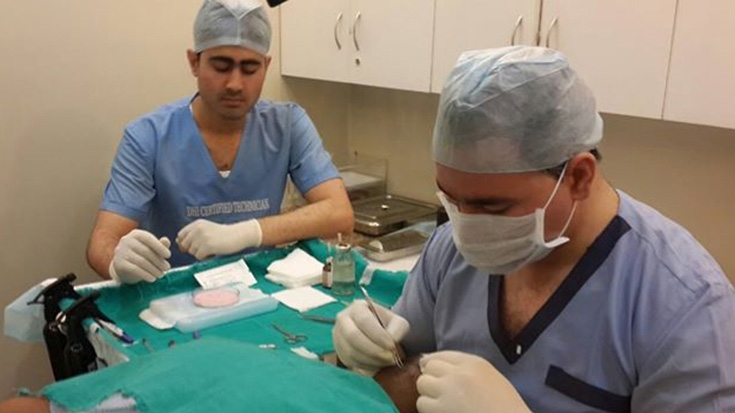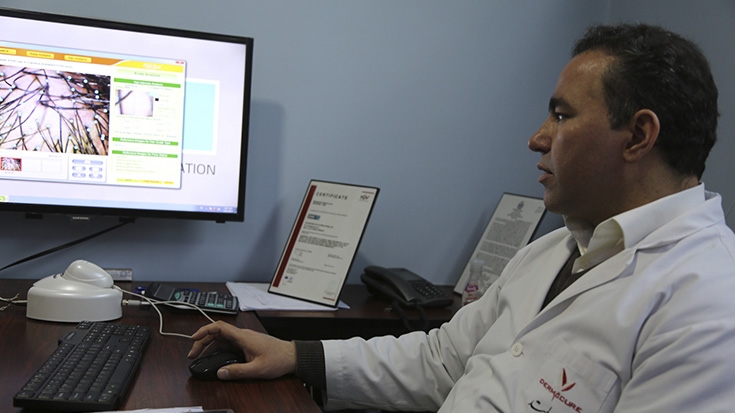Ten patients have benefited so far from the services offered at DHI Kabul clinic, according to Dr. Ghulam Rabbani Naqshbandi Zadah, General Director at Rose. “Hair implantation is a standard procedure that is carried out in Afghanistan the same way it is around the world,” Dr. Rabbani said. “Hairs are taken from other parts of the body and implanted in places where hair is lost, such as the scalp.”
Rose Hospital’s application to conduct DHI in Afghanistan was supported by Afghanistan New Market Development Project (ANMDP), operated by the Ministry of Commerce and Industries with funding support from the World Bank.
The ANMDP, launched in May 2011, is a cost-sharing program to support Afghan Small & Medium Enterprises (SMEs) and Business Associations with access to Business Development Services (BDS) to enhance their productive capacity and encourage innovation through product and/or market diversification. The Facility for New Market Development (FNMD) as the core window through which firms access assistance, operates in four key cities of the country including Kabul, Mazar-e-Sharif, Jalalabad and Herat. The FNMD helps SMEs and Business Associations to gain market knowledge, improve product quality and processing technologies, and increase their presence in both domestic and export markets. Other FNMD supporting activities include a marketing and communications program, core skills building workshops and supplementary support for developing businesses plans.
The ANMDP also provided Rose Hospital a grant of $90,000, which enabled training for their medical specialists in the DHI technique in India as well as the marketing and advertising unit. The hospital was able also to expand by adding two floors to its building.
“The project provided very useful and effective support to Rose Hospital,” says Dr. Rabbani. “Through the project’s support, we were able to better advertise and market our health services to the public, and thus increase our patient volume. Since this partnership, we have increased our income by 40 percent.”
Treatment at lower cost
Dr. Rabbani points out that in addition to being pioneers in providing the treatment in Afghanistan, the DHI Kabul clinic has managed also to reduce the standard cost specified by DHI by almost a third. Moreover, he notes, “People are no longer forced to spend huge amounts of money and travel to other countries in the region in order to receive this similar procedure.”
“We are conscious of our customers’ economic situation,” Dr. Rabbani remarks. “By partnering with the ANMDP, we are able to reduce costs for customers while also contributing to the local economy by increasing employment while offering an increase in the number of procedures that can be conducted within Afghanistan.”
An appreciative customer is a 24-year-old boxer who has suffered hereditary hair loss for the past three years. “I am a boxing champion and appear frequently in the media, so it really scared me that I might have to appear on TV with a bald head,” says the man, who asked to remain anonymous. He said that despite spending more than $1,000 over the years, he had not been able to find a solution to his hair fall. But recently, he has been able to put his fears to rest. "I did a lot of research about hair loss treatment,” he says. “Eventually I discovered the DHI clinic in Kabul and realized it could help me with this problem.


